Wakuni Shoten: A Charming Cafe in Tokyo Designed by Architect Kengo Kuma

Wakuni Shoten, designed by renowned Japanese architect Kengo Kuma, recently opened in a small town's shopping street along the Seibu Shinjuku Line in Tokyo. Through its concept and design, it has already become a new hub for art and cultural exchange. Read this article to find out more!
Stories of Artisans Woven Together by Pieces of Metalworking
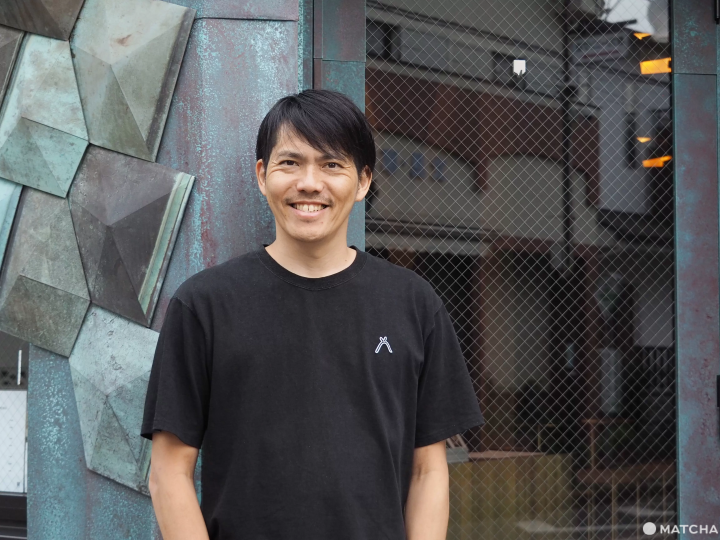
Mr. Uchino, the owner of Wakuni Shoten, comes from a family that has been involved in architectural metalworking for generations. Since childhood, he has learned the trade alongside his father in a rigorous environment, mastering the skills of a craftsman.
Whether it's repairing leaks or aging structures, insulation, or snow protection, any project related to roofing poses no challenge to these meticulous metalworkers who never overlook any detail.
Metalworking: The process of cutting, bending, welding, and shaping metal sheets to create metal products with specific shapes and functions. Metalworking is widely used in various fields such as automobile manufacturing, machinery, architectural decoration, and appliance production.
Entering the Everyday Art: Folded Metal Cranes
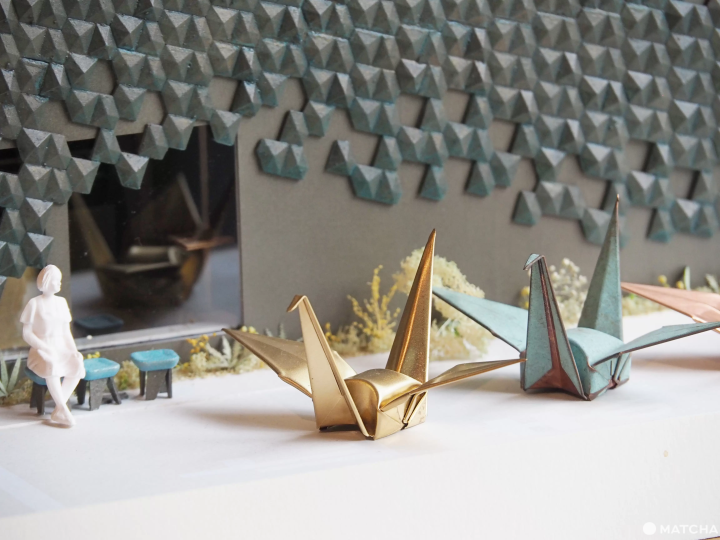
To most people, the roof is simply an integral part of a home. While a house without a roof isn't considered complete, few pay special attention to the shape or material of the roof, let alone possess related professional knowledge.
In an effort to introduce more individuals to the allure of metalworking, Mr. Uchino has boldly endeavored to "transform metalworking into valuable works of art."

Picture courtesy of Wakuni Shoten
Metalworking involves cutting and bending, and Mr. Uchino skillfully utilizes his expertise and precision to create uniquely beautiful "metal folding cranes."
As his reputation gradually expands overseas, he has been invited to conduct experiential workshops in countries such as Germany, France, and Malaysia. Collaborating with a French paper artist, they have designed brass metal decorations featuring animal heads such as Shiba Inu dogs, cows, horses, and sharks, which have garnered attention and love from many international fans.
As the exquisite Japanese metalworking craft permeates daily life, it indirectly encourages artisans in other industries to reassess how they can showcase the tools and intricate techniques they possess to the world.
Unveiling a New Chapter in the Shop that Nurtured His Growth: Wakuni Shoten
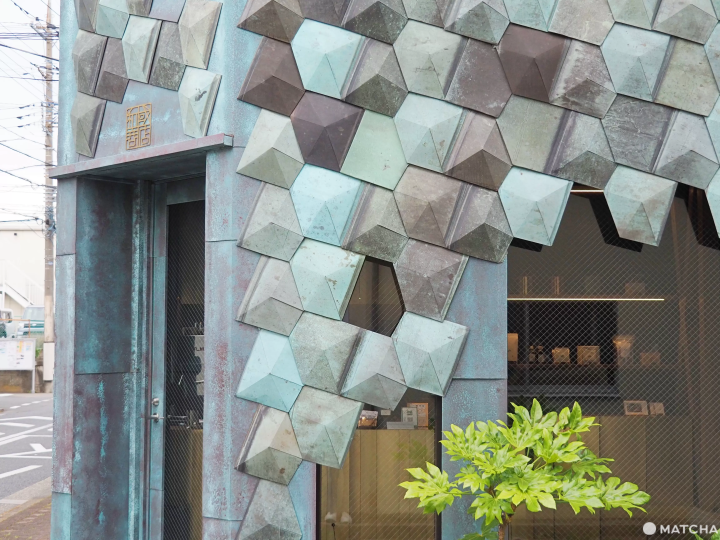
Aoba Shopping Street was once lined with stores catering to the daily needs of residents, among them Wakuni Shoten, a building that formerly served as a tobacco shop, teeming with memories of his childhood and time spent with his father.
When Mr. Uchino resolved to transform this establishment into a focal point for local revitalization and the promotion of metalworking craftsmanship, he fortuitously crossed paths with the acclaimed architect Kengo Kuma.
Kuma, a seasoned traveler known for his global ventures, found himself so deeply moved by Mr. Uchino's passionate vision that within five minutes of their encounter, he enthusiastically committed to spearheading the design project.
An Architectural Design Resembling a Miniature Art Gallery
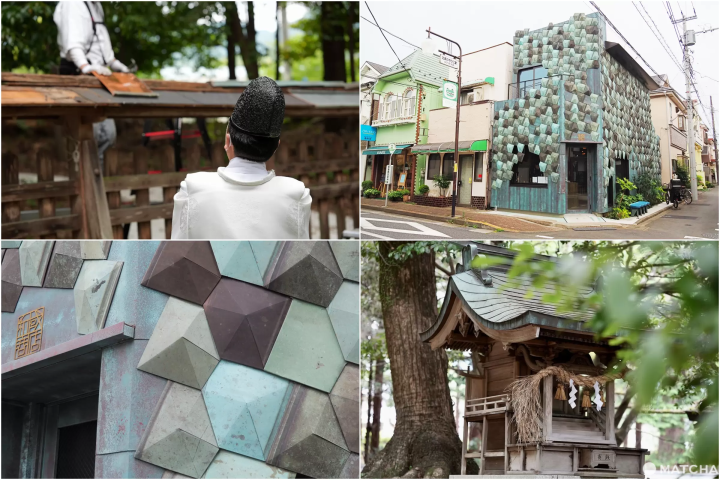
Upper left and lower right photos courtesy of Wakuni Shoten
The exterior of Wakuni Shoten diverges from the materials commonly employed by Kengo Kuma, like wood, stone, and glass. This project signified Kuma's inaugural foray into a building design focused on verdigris copper plates.
During their contemplation on how to acquire 700 copper plates of various sizes, a craftsman entrusted with upkeeping the Meiji Jingu Shrine roofs connected them with a surplus of historically significant copper plates sourced from the recent restoration of the Hayama Shrine in Hiroshima.
Consequently, the resplendent facade of Wakuni Shoten materialized akin to a mythical creature, amalgamating these evocative components.
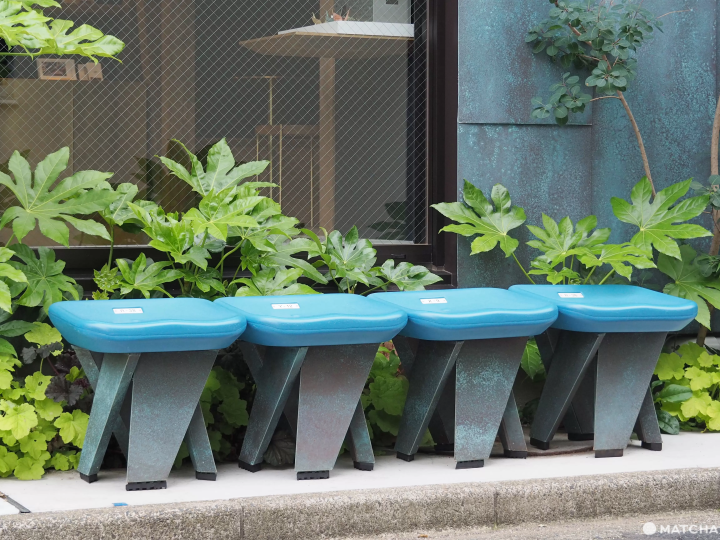
The benches situated outside the shop are a unique element sourced from the old National Stadium, which was sold by the government following its demolition. Mr. Uchino acquired these pieces as a tribute to honor the numerous football matches he fondly watched there, preserving them as a memory of those times.
Intriguingly, Kengo Kuma later undertook the design of the new National Stadium, the iconic venue for the Tokyo Olympics. This fortuitous connection appeared almost destined, prompting Kuma to gladly repurpose the remaining seat cushions from the old stadium's benches.
By adding legs reminiscent of the Olympic cauldron, he breathed new life into these cushions, granting them a fresh purpose and narrative.

Picture courtesy of Wakuni Shoten
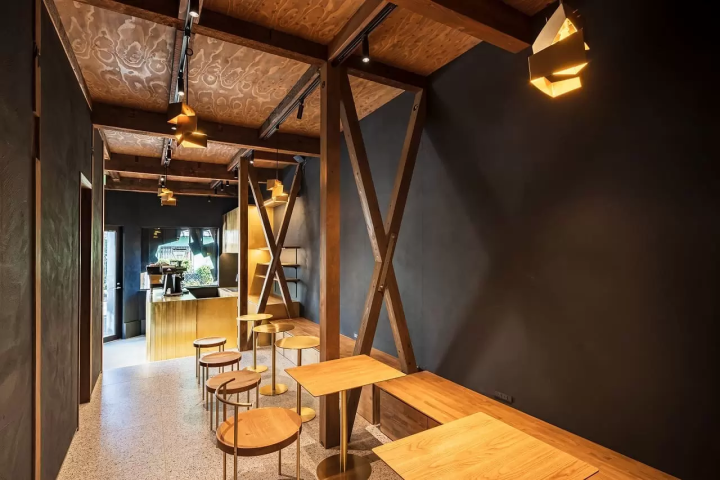
Picture courtesy of Wakuni Shoten
The existing wooden beams, along with the wooden tables and chairs embellished with brass inside the shop, cultivate a warm dining atmosphere infused with a gentle, rustic charm.
Architect Turned Pastry Chef?! A Unique and Delicious Menu
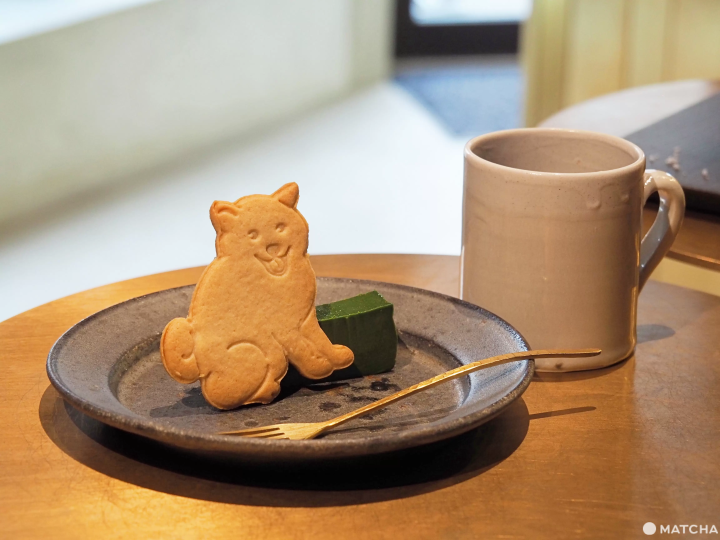
During a previous private visit to Wakuni Shoten, I indulged in their matcha French sauce mochi cake and Shiba Inu cookies. Their exceptional taste left a lasting impression on me, prompting me to order these same two desserts on my recent visit.
The matcha French sauce mochi cake is a delightful creation that originated from the owner's acquaintance, an architect turned pastry chef, who began crafting it purely out of passion after his daily work hours.
Its flavor competes favorably with the treats found in the renowned and perennially bustling sweet shops lining the streets of Tokyo. Not only is the texture of this cake moist and luscious, but it also radiates the luxurious aroma of high-quality matcha green tea, melting delectably with each mouthful.
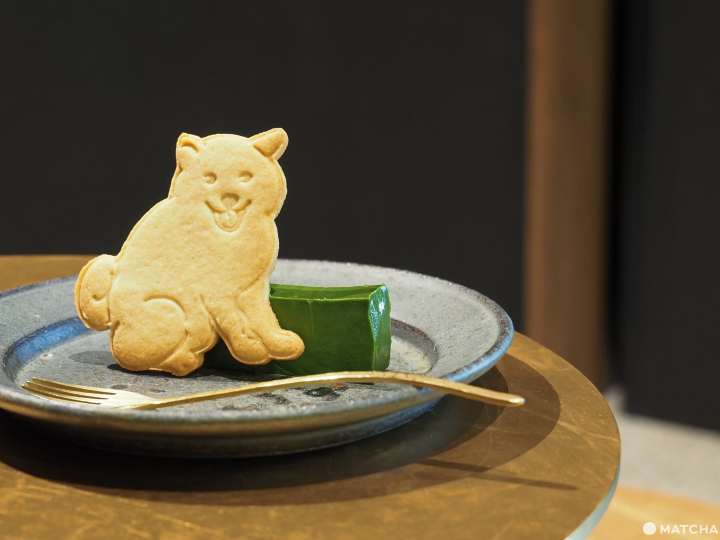
The Shiba Inu butter cookies are another highlight of their exclusive menu, providing a crispy texture along with a delightful, subtly sweet, and creamy flavor that is perfectly balanced. These cookies complement a steaming, flavorful cup of coffee exceptionally well.

Following a staff recommendation, I also savored the handmade red bean butter toast.
The red bean exhibited a delicately smooth texture, complemented by the addition of rock salt which imbued rich layers of flavor, transforming this classic combination into a truly delightful culinary experience.
Visit Wakuni Shoten for a Relaxing Coffee Break
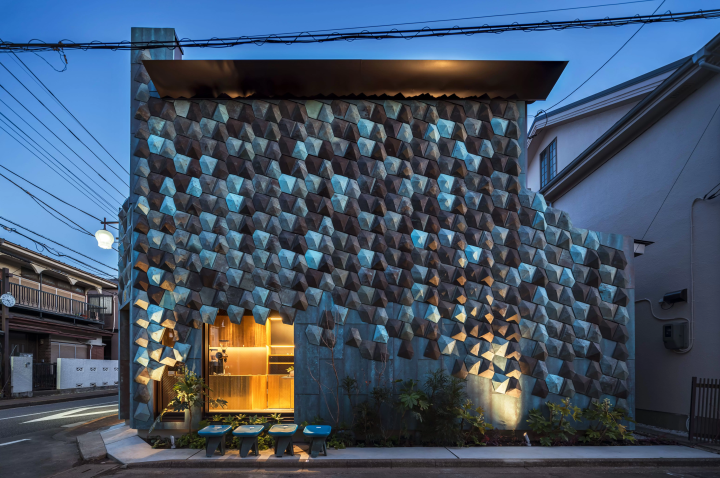
Picture courtesy of Wakuni Shoten
Since its inauguration in January 2024, Wakuni Shoten has not only drawn visitors from far and wide, comprising architecture, craftsmanship, and coffee aficionados, but has also evolved into a neighborhood rest stop, seamlessly blending into the daily strolls of local residents.
The owner's aspiration is for every individual, irrespective of their duration of stay, to reignite a sense of wonder through the intricate nuances present in the pottery, cuisine, furnishings, architecture, and community interactions at Wakuni Shoten.
Read also
In cooperation with Wakuni Shoten


































![[Niigata] Skiing and snowboarding are just not enough! Fun snow spots for parents and children](https://resources.matcha-jp.com/resize/720x2000/2026/01/29-256901.webp)

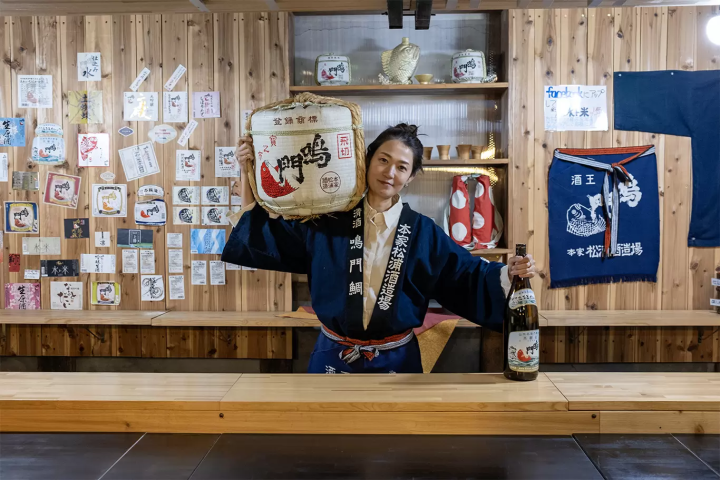
![[Gunma, Nakanojo] Experience Japanese history in a wooden school building from the Meiji era](https://resources.matcha-jp.com/resize/720x2000/2025/12/25-254022.webp)
